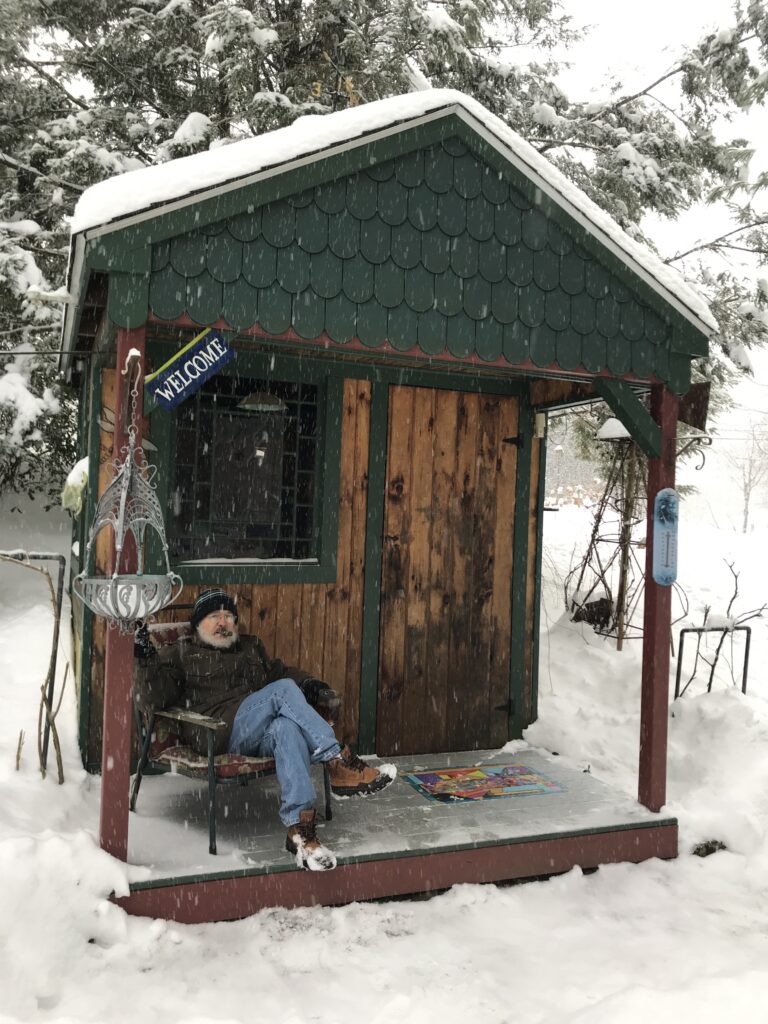THE EPA ON INTERPRINT: FIVE YEARS OPERATING WITHOUT THE PROPER PERMITS. SO HOW MANY TONS OF POLLUTANTS WERE RELEASED IN THAT TIME IN THE CITY OF PITTSFIELD, and OTHER QUESTIONS
BY DAN VALENTI
 In a story that this website broke late last night, the U.S. Environmental Agency has fined the Interprint, a Pittsfield-based printing company, an amount that could reach $385,000. The EPA ruled against Interprint for building its new facility on Rt. 41 near the Richmond line without obtaining the permits required under the Clean Air Act.
In a story that this website broke late last night, the U.S. Environmental Agency has fined the Interprint, a Pittsfield-based printing company, an amount that could reach $385,000. The EPA ruled against Interprint for building its new facility on Rt. 41 near the Richmond line without obtaining the permits required under the Clean Air Act.
In addition, the EPA said on Dec. 7, that the company “began operating the new facility without complying with new source review requirements for VOC emissions, Title V operating permit requirements, and the National Emission Standards for Hazardous Air Pollutants and Publishing Facilities.
 The EPA has filed a consent decree in federal court. The 40-plus-page report is available on line at the EPA website. Wading through the turbid prose, the EPA clearly has judged this a serious offense. The court will review the EPA’s claim and rule on it. The consent decree requires Interprint to comply with the Clean Air Act by obtaining the proper permits (after the fact, as it were) and “significantly reducing its VOC and hazardous air pollution emissions.” This phrase is ominous sounding, since one can interpret it to mean that the EPA is concerned about the volume of hazardous emissions that have been released.
The EPA has filed a consent decree in federal court. The 40-plus-page report is available on line at the EPA website. Wading through the turbid prose, the EPA clearly has judged this a serious offense. The court will review the EPA’s claim and rule on it. The consent decree requires Interprint to comply with the Clean Air Act by obtaining the proper permits (after the fact, as it were) and “significantly reducing its VOC and hazardous air pollution emissions.” This phrase is ominous sounding, since one can interpret it to mean that the EPA is concerned about the volume of hazardous emissions that have been released.
 Interprint, under its founder William Hines, got started in 1988 at 125 Pecks Road. In the spring of 2004, the company broke ground for the new facility at 101 Central Berkshire Boulevard, Rt. 41, just before Pittsfield turns into Richmond. Interprint is now owned by a German holding company.
Interprint, under its founder William Hines, got started in 1988 at 125 Pecks Road. In the spring of 2004, the company broke ground for the new facility at 101 Central Berkshire Boulevard, Rt. 41, just before Pittsfield turns into Richmond. Interprint is now owned by a German holding company.
The EPA filed the consent decree in U.S. District Court. The consent decree is subject to a 30-day public comment period. It calls for an $80,000 fine and requires the company to provide certificates to of $1,000 each to households that request one to replace wood stoves with newer, cleaner, more efficient models. The EPA says the typical installation costs $3,000. Therefore, any homeowner who requests a voucher from Interprint will received a 33 percent discount.
Questions Abound
This news raises a number of questions, since Interprint has been operating illegally since it opened its new facility:
* Regarding the public comment period, and interesting question begs to be asked. THE PLANET at this website, with our wits, a computer, and little else, dug up this story. Where was the Berkshire Eagle or any of the other mainstream media outlets? Did they know of the EPA consent decree? If not, why not? If yes, why didn’t they run the story? They know about it now, and yet, three days after the EPA action, still not a line of ink in the paper. This is important because the 30-day window on the public comment period is now down to 27 days, with the clock ticking. Essentially, because the local mainstream media didn’t do their jobs, the public got robbed of three days of input. How do we restore that lost time? Who will come to the public’s rescue here?
* Another question: How are we to understand that Interprint, which was sophisticated enough to navigate its way through the maze of regulations when it worked with the city of Pittsfield to apply for generous tax credits to build the new plant, did not know enough to apply for the proper permits from the EPA? How can that be? It knows its business cannot be done without processes that, if left unattended, damage the environment. Was there selective sophistication being practiced by the company, that is, being savvy as super-agent Scott Boras when it came to applying for taxpayer money but dumb as Gomer Pyle when it came to compliance with the federal Clean Air Act and other environmental law?
* As for the state and city, was there proper oversight and monitoring of Interprint’s application for tax credits? Aren’t there safeguards built to guarantee compliance before tax breaks are handed out? Isn’t there an oversight process to assure the public that any company or outfit receiving taxpayer generosity has complied with existing law? That clearly was not done. Why not? Who fell asleep at the wheel? The company? The city? The state? Everybody? Was this an innocent oversight or a deliberate Sgt. Schultz (“I know nothing!”)? What is the liability of the commonwealth and the city of Pittsfield, if any? Who will determine this? In plain English, how could the state and city assist Interprint to break the law in building the new facility on Rt. 41?

We all understand that development has a price, but that price should never be the environment and the earth itself.
* A question of history comes to mind. Prior to Interprint building on the site, the land on Rt. 41 had been used by the Nash steel fabricating company. Filkens Transport, a trucking company, at one point after Nash Steel closed, looked into the property because of its proximity to the Route 90 interstate. They couldn’t get a clean bill of health for the site. THE PLANET doesn’t know the particulars of why, but we do know that steel work requires lots of unsavory chemicals, oils, greases, fluids, and other substances that are not good for the environment. Nash operated in the days when companies could freely dump hazardous waste pretty much anywhere (remember what GE did to Pittsfield). So the question is: How did Interprint get a “certificate of occupancy” of the site? Did they have to clean it up first? Did it satisfy the environmental requirements or not before the first shovel of dirt was turned? If not, why not? Was that, too, done illegally? THE PLANET is careful to state that we don’t know. We are just asking the question.
* In the five years or so that Interprint has been running out of compliance with federal Clean Air requirements and other environmental law, what, if any, pollutants did it release into the environment? Citizens have the right to know. For example, think of the proximity of the Richmond Shores enclave and Camp Russell. What was in the air for five years? What is the company spewing into the environment at this moment? What are residents breathing? Have there been any unusual spikes in asthma, lung ailments, cancer, or any other condition? Again, just a question that need to be answered for people’s peace of mind.
* History again. Back when the EPA issued its consent decree involving General Electric in Pittsfield, Interprint sent a document (#NA-31 on page 94 of the decree) signed by then company chief William Hines. Hines thanks the government for its due diligence and positions Interprint as a steward of the environment, because a clean Berkshires is so important to the region’s economic health. Question: What happened to Interprint’s environmental conscience in the years between 1998 (roughly the time of the GE consent decree) and 2004, when it set about building the new plant? Did it go on vacation in Honduras?
* Finally, doesn’t this story and how it broke fit into THE PLANET’s recent discussion of “journalism in the cyberspace age”? Not one local Establishment media outlet, the so-called mainstream media, got this story. It took
PLANETVALENTI.COM to break it. The fine website iBerkshires then got on board. Our stories are based on facts, vetted, and presented responsibly with lightning speed. Trees didn’t have to die. How could the mainstream media have missed an important story like this?
Could it be they just weren’t looking? As always, THE PLANET welcomes your comments.
—————————————————
SUBMITTED WITHOUT COMMENT, FOR YOUR APPROVAL:
The first WikiLeaks moment occurred on Jan. 17, 1998. It was then that Matt Drudge reported that Bill Clinton had had an affair with a White House intern. The story, though, was not Drudge’s. It was Michael Isikoff’s. His employer, Newsweek, had delayed publication. Drudge went with it – which is to say that he reported that Newsweek had the story. It took another four days for the so-called mainstream media to catch up – a story in The Washington Post confirmed it all. How late! How pitiful!
——————————————————————————
In cyberspace, time and space as the print world knows it have been demolished. True, readers must access any material, regardless of source, as earthbound creatures constrained by these two great limiters. The AVAILABILITY to newsmen and women created by the web: that’s the big difference. Ultimately, this is a philosophical matter, which, I’m sure, THE PLANET shall be dealing with in the “time” ahead.
—————————————————————————
No physical counterpart of the photons of cyberspace can compete with the unrelenting nature, the pace, of high technology. Physical newspapers are ultimately doomed, of course, because they rely on a cumbersome process (cut down forests, process into newsprint, invest hundreds of millions in printing presses, then distribute product by truck of 12-year-olds on bicycles). For daily newspapers trying to figure out “What’s next” and utterly baffled, there seem to be but two choices: true reinvention and transfer of resources to the web OR put your head in the sand, slash the newsroom budget, bleed every cent out of the dying product, then at some point disappear into irrelevance. Which of these two courses do you think the Berkshire Eagle management has chosen? Not the newsroom, let us be clear, but management in Denver and on Rug Row in the CLock Tower Building?

















A lot of great questions in deed. Are we not supposed to seek answers to these questions? Will the local media search out the answers to these questions? Was there a public hearing on this matter? If so where was it held and advertised? Just wondering as there are more things than paying taxes and providing jobs that make one a good corporate citizen. I am not implying that Interprint is anything other than a good corporate citizen. What I am doing is rereading some of the editorials that were written by the daily in regards to BP. If you recall they were “unregulated” due to their cozy relationship with members of the Bush administration. Does this not apply equally? Or is it due to the fact that BP has never advertised in the Eagle?
Just some food for thought
Valenti posted recently ending about blogging “Life is but a dream.” This story about Interprint, that I assume is a good corporate citizen as was mentioned above. So how could this happen. My parents live on Richmond Shores. It worries me to think of the years of Interprint being in their backyard and going about business wihtout proper permits.congradulations for getting this story. its not first so much that matters. its the fact that we know about it now.
You are not dreaming.
If this isnt predictable nothing is. Eagle first says Interprint is a great corprate citizen, of the highest caliber. read they supported the stadium. Next the Eagle and Mr Fanto proclaim its much ado about nothing and there is no cozy relationship between city officials and interprint. Read its the holidays and Mr. Fanto is going to have to look into the eyes of the Interprint executives over the crudite and he needs to “feel comfortable” at these social events. The Eagle then comes out with the “negative” people here made this happen with all those questions. read you all deserve this for not passing the stadium
Valenti rules again.
I personally don’t see anything of interest here. Nor do I see “news.” I see opportunism at work on Mr. Valenti’s part, sharing what amounts to a simple procedural matter that Interprint will address as a responsible corporate citizen for the simple reason of driving traffic to this site. He’s not a journalist. He’s an entertainer posing as one. He’s clever but insubstantial.
I think it’s more productive to stick to the issues and not stoop to personal attacks. This is what doomed Topix. It’s hard to develop this type of medium as a form of deliberative democracy when you can’t focus on the issues.
Just curious – if you see nothing of interest here then why do you stalk the site and repeatedly post? A potential $385,000 fine is a bit more than ‘nothing.’ Failing to apply for permits, that’s one thing but to knowingly pollute the air with potential hazardous material is quite another. Many people flock to Berkshire County in search of clean air, clear water, and good living. Anyone that’s allowed to bypass the system in pursuit of profits should be put under a microscope and carefully monitored in the future.
Personally I appreciate the speed and occasional accuracy with which Mr. Valenti posts. He is always quick to correct anything that may have escaped him and to alert when conjecture is in play.
OK Bill, operating without the proper permits FOR YEARS is not news, spewing toxicity into the air is not news, getting special treatment from the ruberto administration is not news. You sure are a [gung] ho for ruberto.
If we buy the line there is “nothing” here than on the face of that argument the question becomes why have an EPA to enforce and verify smokestack outputs? is it just government over reaching into the operations of a company? or is there a larger obligation to ensure through the permitting process we have an idea of both what and in what amounts we are allowing chemicals to be discharged into the very air we breath? and if thats an over reach where as pointed out else where on this site does the condition of my lawn fit into the picture?
Once again all that and I didnt need to call anyone a name. embrace discussion.
I’m both sad and confused, during the GE days the City published an address we could write to in order to give our 2 cents worth to the Judge. Do we still get to? or is it all different now?
Can someone tell us how to if were still allowed to?
M. WOOD
Thank you for raising an excellent point. The public has a 30-day comment period (now down to 26 days). Comment to whom? Where? This website shall be posting the address. In doing so, we stress that the comment period is both for those who agree with the EPA’s action and those who disagree.
this is indeed news. not happy with the way its presented, but its better than nothing (the eagle)
The pattern that has emerged regarding coverage and non-coverage of events by the Berkshire Eagle is obvious to most Berkshirites now. The smell can no longer be ignored.
One has to wonder when corporate management will pay attention. They certainly don’t care about editorial content. It took Scribner’s losing a bundle of money for him to get the ax.
A very good friend and a major player in county finance tells me that there is more to come. What’s next?
Great job Mr. V. You’re doing a few things right, and I find it interesting that haters are making comments here, on your site… and NOT online via the Eagle / Disqus. What a flop that has been.
I think Valenti needs a bit of appreciation for the job he’s doing in general and for the one he did on this story specific. The Eagle missed it and found it in B section today 4 days after the Epa ruling. Did they run this only because two websites this one and iberkshires had it. What I like about this story is taht it presents the facts then raises important quetions.